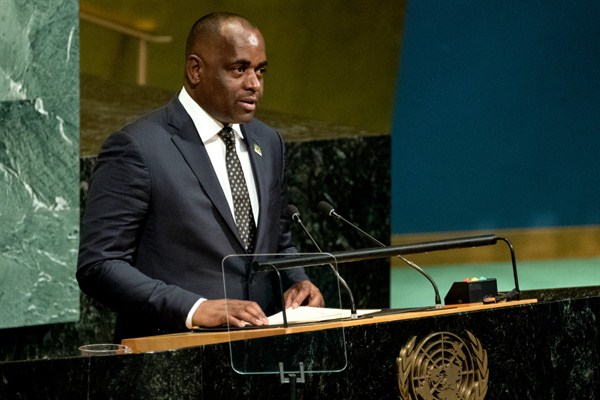The small Caribbean island nation of Dominica has been rocked by protests in recent weeks ahead of parliamentary elections that are scheduled for Friday. Demonstrators and opposition groups claim the current electoral system unfairly advantages Prime Minister Roosevelt Skerrit’s government, which is refusing to implement needed reforms to facilitate a free and fair vote. In an email interview with WPR, Robert Looney, a distinguished professor at the Naval Postgraduate School in Monterey, California, explains how the government’s stance on electoral reforms is threatening the legitimacy of this week’s elections.
WPR: What prompted the recent protests over electoral reforms? What are the main grievances of the protesters and the opposition?
Robert Looney: The recent protests in Dominica express a variety of grievances that have built up over the past several years. The main opposition United Workers’ Party, or UWP, claims that Skerrit and his governing Dominica Labour Party, or DLP, are involved in corrupt practices and dragging their feet on implementing political reforms that the opposition believes are necessary to level the playing field.

